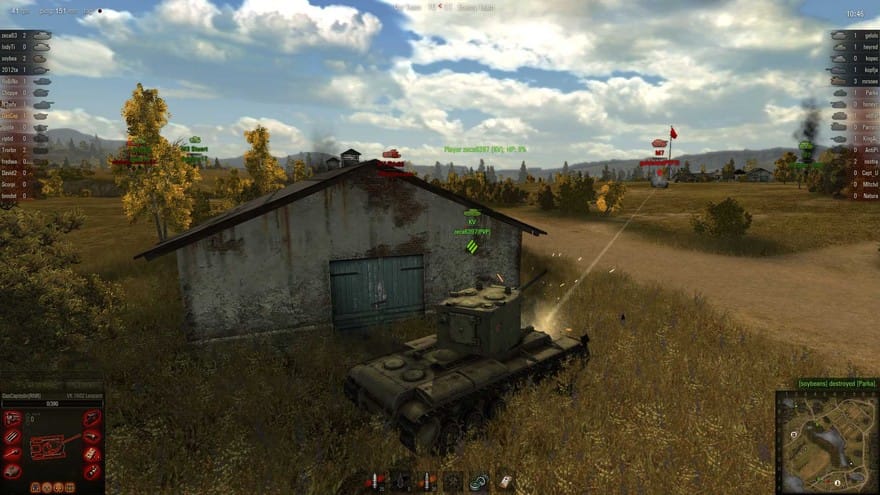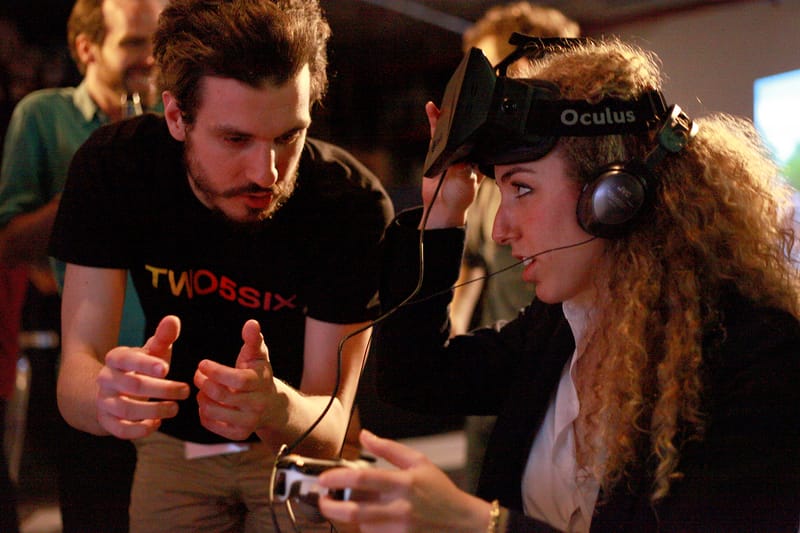The Official Digital Magazine for players of videogames by Wargaming.net, the developer of World of Tanks, is called Let’s Battle.
Now, there’s a whole lot of information packed into that sentence up there. Those 14 words tell us a quite a lot about the PC gaming MMO mainstay-cum-newly-released console title World of Tanks. For one thing, the sentence tells us that World of Tanks is only partially a discrete “videogame.” Another large part of the WoT title is that its players make up the armoured division of a vast and multiform digital army, whose air and sea branches are Wargaming.net’s lesser-known World of Warplanes and World of Warships, respectively. The above sentence also tells us that the community of gamers comprising the real world CentCom of Wargaming.net’s “army” is both avid and cohesive enough to support the existence of a digital publication, a publication targeted solely to them, a publication whose mission statement is to augment players’ gaming experience by providing, among other material, “[e]xclusive interviews from the creators and developers of Wargaming games” and “inspiring [real life] military stories and facts.”
‘The uniquely immersive quality of war-themed MMOs’ should be starting to creep you out
And just right here, with only this information presented, the uniquely immersive quality of war-themed MMOs should already be hitting home. Once we know these facts it should not surprise us in the least to learn, for instance, that players of World of Tanks refer to themselves as “tankers,” that competitive tankers organize themselves into “clans,” and that Let’s Battle sometimes profiles these clans and their leaders right alongside the game developers and [real life] military stories that the magazine uses to publicize the game itself. Nor should we be surprised that well known and respected clans balance on-the-field prowess with what is referred to in WoT discussions as a felicity for “diplo”—short for diplomacy—which skill is necessary to the formation of multi-clan coalitions, and in the maintenance of cohesiveness among clans, and in the taking and holding of territory from invading/defending forces.
And just here “the uniquely immersive quality of war-themed MMOs” should be starting to creep you out, not because discussions of clan politics and diplo are laden with the feverish troll and dragon lexicon of a new D&D set, but precisely because they are not. Interviews of clan leaders in Let’s Battle read like something you’d find thumbing through The Economist, filled with equanimous battle philosophies, the language of carefully-couched mutual respect, and the setting of long-term sustainable goals for what a clan might achieve among the game’s maps. In other words, the war being waged in the digital spaces of WoT is not, in a basic sense, “real,” but it also lacks many of the markers and symbols of fantasy that we use to distinguish the action of video games from things that might actually happen in the world. It can sound real, and in an age of real life unmanned war machinery it can even feel real, so you wouldn’t exactly call this a fringe community.
Oh, and when I fired up the game on my Xbox One most recently, it congratulated me and my fellow tankers on unlocking a new map, Prokhorovka, an achievement triggered by the destruction of 40 million vehicles in the roughly 6 weeks since the game was released onto XBox Live. Oh, and this past Friday Wargaming CEO Victor Kisyli announced that the company would increase the budget of its initiative to expand WoT into the e-Sports arena to a total of $18 million in 2014. Oh, and finally, Wargaming currently boasts some 75 million registered players; at its peak, World of Warcraft had 12 million. So … you wouldn’t call this a small community
All of which is, I guess, to say that it would feel odd to try to evaluate World of Tanks using the standard functional and aesthetic matrices by which many other games are measured. There is no “diplo” in your standard FPS or platformer even when its online mode is widely popular and obsessively played. In my experience, disagreements among team members in these games are solved by a combination of blunt force trauma, racist mic chatter, and surreptitiously placed “friendly” ordnance. But this kind of immaturity has consequences among the social structures of World of Tanks, real life consequences, and it’s not clear to me how much of this real world/game world blending derives from the collections of pixels on the screen.
This is why, to the uninitiated, the game can often seem, erm, boring.
Maybe it’s this: World of Tanks is, at heart, a strategy game, and the strategy of war is often ploddingly slow, infinitely complex, and “no-fucking-around” high stakes. And even though tankers aren’t actually risking their lives in these confrontations, World of Tanks has been successful in recreating many of the other components of battle (i.e. unavoidable advantage in superior numbers, drastic penalties for impulsiveness) that impose such seriousness on real combatants. This is why, to the uninitiated, the game can often seem, erm, boring; because actual teamwork means you do what’s needed, and sometimes what’s needed is for you to sit behind a strategically important bush and fire your cannon once, or not at all, for entire skirmishes. This sucks, but to do otherwise risks not only getting your own tank blown up, but jeopardizing your team’s chance to take territory, to hold the line, to win.

World of Tanks (and to some extent MMOs in general) calls upon players to access a skill set unexercised by almost any other genre of videogame. It’s a more nuanced skill set, a larger one that’s not so fast-twitch; a skill set that encompasses the breadth and texture of something else, something more like what’s required to negotiate daily life. The variety of culture and experience within Eve Online represents something entirely outside of, and in addition to, the rest of videogame culture. But for all our talk about how we want our videogames to be “realistic” or “photo real,” the actual confluence of games and real life can be a bizarre and uncomfortable thing. Consider: World of Tanks is hugely popular in Russia, where one of Wargaming.net’s three major development studios is. Another studio is in the US. Care to guess where the third one is? The fucking Ukraine, where real-as-shit Russian tanks just rolled in last month on some “now-you-belong-to-us-international-military-incident” nonsense. What kind of discussions must that have incited on the ol’ message boards? See what I mean?
Maybe it’s just that when your war game succeeds in encapsulating more than just the vainglory of battle, when some of the quotidian grit of actual reality gets in between the gears of the videogame war machine, people have a hard time treating it like a game at all. Because in some ways, it no longer is.





